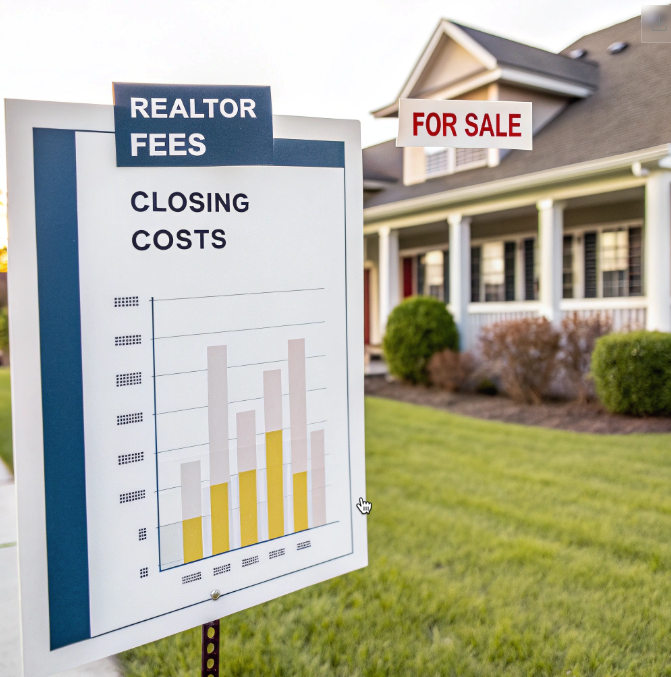When you find yourself involved with buying or selling a home, chances are, you’re looking forward to the next chapter of your life and the changes that a new living space will bring. But with all the activity that surrounds a potential real estate deal, you may not be giving too much thought to what that overall deal is likely to cost you. The price that’s on the table when you’re buying or selling a home is just part of the puzzle.
There are several other fees or closing costs that you will need to adjust to the overall financial picture as well. These differ depending on whether you’re the buyer or the seller.

Closing Costs If You Are The Buyer
The majority of closing costs are typically encountered by the buyer of a property. If you’re the buyer and your lending institution still charges a fee to set up a mortgage for you, you should expect to pay typically between $300-$500 for an appraisal related to the potential mortgage.
Mortgage default insurance is necessary if you have less than a 20% down payment. Less money down equals more in insurance fees. The Canada Mortgage Housing Corporation (CMHC) insures these mortgages, and they also charge a fee on mortgages with amortizations exceeding 25 years.
Some other typical costs for the buyer include the following:
- Adjustment fees for hydro, taxes, water or gas, etc.
- Title insurance
- Lawyer’s fees
- Home Insurance
Closing Costs If You Are The Seller
If you’re the seller and you list your property with a real estate company, you will have to pay a commission when it sells and closes. You will be able to negotiate that cost, but to be on the safe side, you might want to count on paying at least four percent of the selling price plus GST.
If in selling your property, you have to discharge the mortgage, you will have to pay a penalty and a discharge fee. The penalty usually amounts to at least three months’ worth of mortgage payments and potentially more depending on how far the maturity date and the difference between the current fixed rate and the actual mortgage rate, while the discharge fee is typically between $200 and $600.
It’s best to check with your lender regarding your type of mortgage – open or closed – and the fees associated with closing it. Asking if your mortgage is transferrable may also be wise. Finally, as a seller, you will also have to pay for a lawyer’s services.
Where To Find Support
Whether buying or selling a property, knowing a little about the law may help you in any contractual dealings. An Ontario real estate lawyer aims to protect the interests of his or her clients when it comes to the legalities of this sometimes complex industry. A savvy lawyer may also be able to help you avoid potential financial pitfalls associated with such major transactions, thus reducing a lot of the stress from your overall experience and allowing you to better focus on your transition forward.





